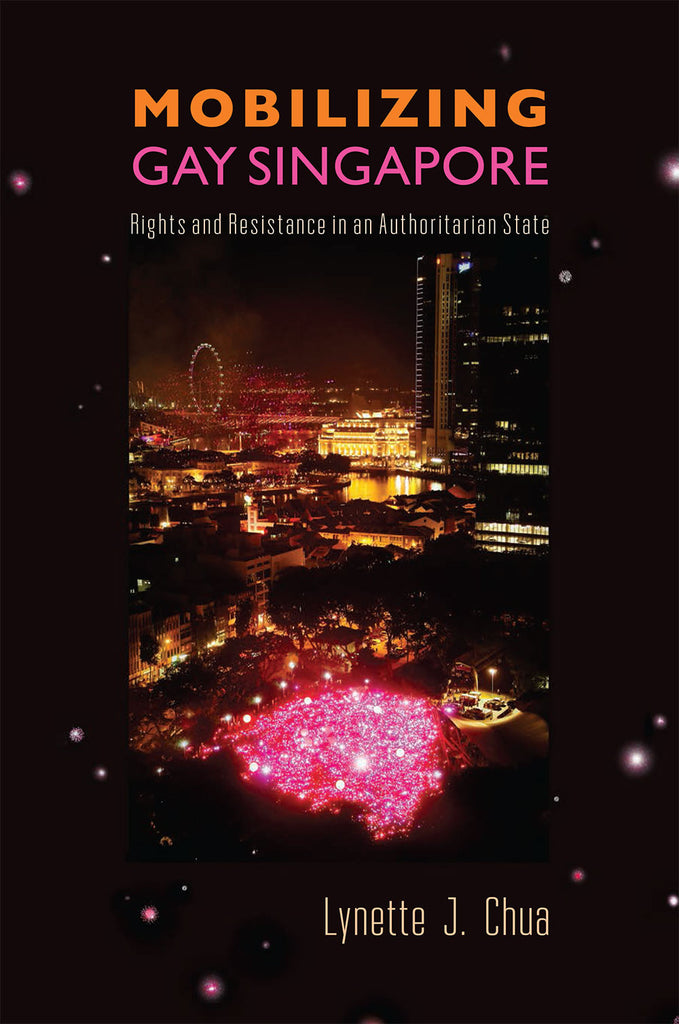Mobilizing Gay Singapore: Rights and Resistance in an Authoritarian State
$34.00 SGD
2015 Distinguished Book Award by the Sociology of Law Section of the American Sociological Association.
2015 Hart Socio-legal Book Prize for Early Career Academics, Socio-legal Studies Association (U.K.).
Shortlist
EuroSEAS Social Science Book Prize 2015
From private meetings in living rooms in the 1990s to the emergence of annual rallies and decriminalization campaigns in the past six years, Singapore's gay rights activists have sought equality and justice in a state that does not recognise their rights to seek protection of their civil and political liberties. In her groundbreaking book, Mobilizing Gay Singapore, Lynette Chua tells the history of the gay rights movement in Singapore and asks what a social movement looks like under these circumstances. She examines the movement's emergence, development, strategies, and tactics, as well as the roles of law and rights in social processes.
Chua uses in-depth interviews with gay activists, observations of the movement's activities, movement documents, government statements, and media reports. She shows how activists deploy "pragmatic resistance" to gain visibility and support, and tackle political norms that suppress dissent, while avoiding direct confrontations with the state.
"Mobilizing Gay Singapore fills a void in foreigners’ understanding of gay issues in Singapore. It will remain for some time the standard work on the subject and is a very welcome addition to the LGBT canon." - Nigel Collett
“The book offers a timely, comprehensive and reflective discussion of the gay and lesbian movement in Singapore and makes a significant contribution to queer Asian studies. I would like to highlight the interview quotes of gay and lesbian activists in the book. They are indeed significant personal narratives of an important history and a vivid representation of the activists as diverse individuals” - Lucetta Kam
“The in-depth exploration of a contemporary gay movement in an authoritarian state is a unique contribution to the study of social movements generally and gay rights specifically. The concept and examples of pragmatic resistance also provide a very compelling contrast to how much of the literature discusses political opportunity, resource mobilization, the means of activism, and the place of law and rights in social movements.” - Joshua Wilson
Lynette J. Chua is assistant professor of Law at the National University of Singapore.
Publication Year: 2014
230 pages, 229mm x 152mm
Includes four tables, one map
Paperback
ISBN: 978-9971-69-815-7
NUS Press

